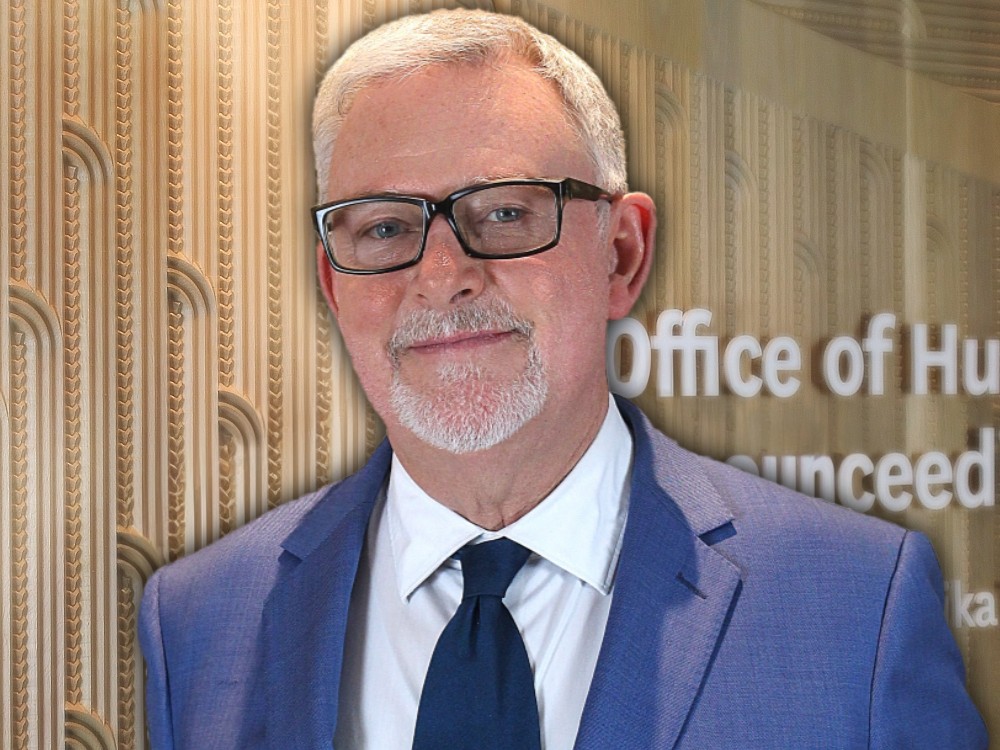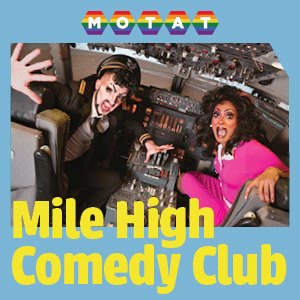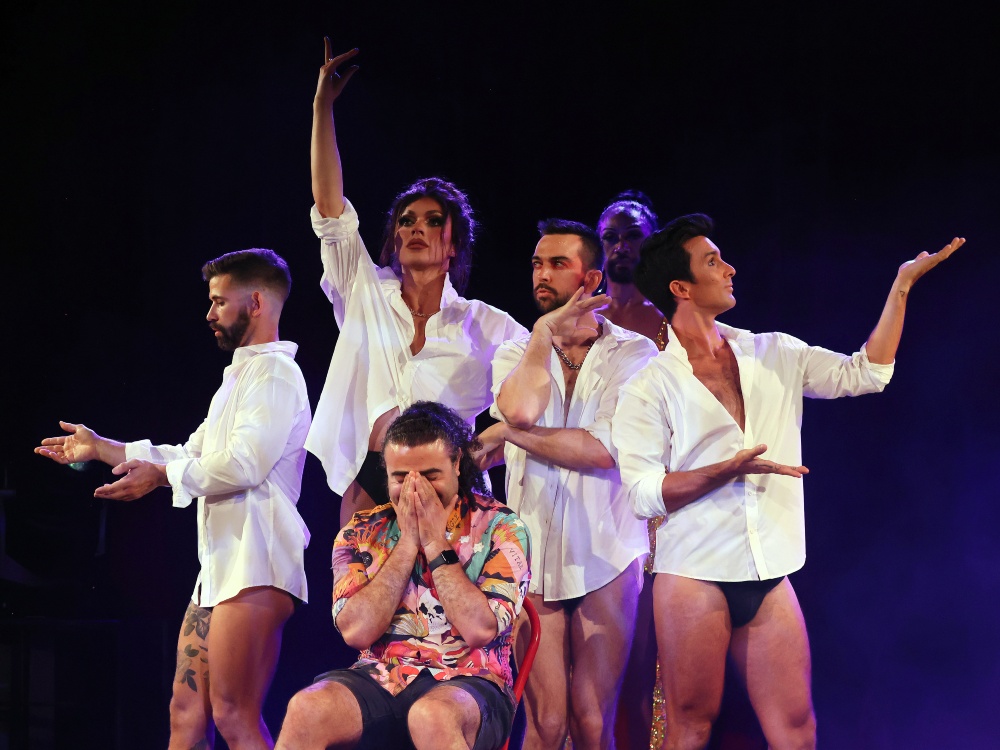New Zealand’s Chief Human Rights Commissioner, Stephen Rainbow, talks to YOUR EX’s Oliver Hall about the importance of societal cohesion, intergenerational dialogue, and what’s needed to protect LGBTQ+ human rights in a polarised world.
When Stephen Rainbow took on the role of New Zealand’s Chief Human Rights Commissioner, he knew it would be complex. But for someone who’s spent decades straddling ideologies in politics and local government — with Labour in the ’80s, Greens in the ’90s, National at the dawn of the noughties — this kind of nuance is familiar terrain.
And perhaps nuance is what’s most needed now. Rainbow sees New Zealand as a country more divided, with fewer bridge-builders, and a shrinking space for civil discourse.
“In the past, if you disagreed, you could sit down, have the discussion, and part ways with mutual respect,” Rainbow says. “Today, there’s less appetite for those bridging conversations.”
He’s speaking to a broader climate, one in which polarisation is growing, social media is supercharging division, and dehumanisation is creeping into discourse. “When you label someone with a different view as a ‘bad person’, you erode their dignity, and their human rights protections, by dehumanising them,” he warns.
It’s a concern with a historical shadow. Rainbow points to pre-Nazi Germany, where LGBTQ+ life was thriving — until it wasn’t. “The Weimar Republic was incredibly gay- and trans-friendly,” he notes. “Within three months, the Nazis eradicated that. Division feeds an appetite for authoritarian solutions, and LGBT people are always the first to suffer.”
Restoring Common Ground
The Commission, now nearing its 50th year, is preparing a national human rights action plan that Rainbow hopes will rebuild some of that lost social cohesion.
“We want to identify shared values all New Zealanders can agree on, regardless of religion, ethnicity, or sexuality,” he says. “The goal is to reduce polarisation. That’s our challenge heading into 2027.”
It’s not just a theoretical exercise. The Commission received over 8,000 inquiries last year alone, offering mediation in over 1,000 cases. But while policy and process matter, Rainbow believes that human rights work must ultimately begin and end with connection.
“The most important thing I’ve learned, through politics, transport policy, and everything in between, is the ability to work with people you don’t always agree with.”
And he’s quick to acknowledge that he’s had to learn, and unlearn, a few things himself.
On Trans Inclusion & Intergenerational Dialogue
Rainbow’s appointment drew criticism from some corners of the rainbow community, in part due to comments made during his tenure at Auckland Transport referencing a “trans agenda.”
He doesn’t dodge the controversy. Instead, he reflects on it as a moment of misalignment between generations.
“At that time, I was observing a shift in the rainbow movement, from a focus on same-sex rights to a broader movement, with a different generation leading it,” he says. “I failed to understand that shift then.”
Now, he’s clear about where he stands.
“I am the Human Rights Commissioner for all New Zealanders, including trans and non-binary people. I take that seriously. Trans people are part of my world. I have their back because I must uphold the human rights of every New Zealander.”
But part of the gap, he thinks, comes down to silence — particularly from older rainbow people who’ve lived through unspeakable trauma, but never fully passed on their stories.
“My life journey has included times when it felt better to be dead than gay,” he says. “I lived through AIDS. I feared for my life after sex. We haven’t communicated effectively just how challenging our lives were.”
Next year marks 40 years since homosexual law reform. Rainbow came out ten years later, in 1995.
“We were exhausted. Or maybe we thought we’d done our bit. But we didn’t sit down with younger rainbow people and say, ‘This is what it cost.’ The silence became a kind of gap, and now we’re paying for that gap in understanding,” he says.
Rainbow believes the loss of so many voices to AIDS and suicide has left a generational vacuum.
“The average life expectancy for gay men of my generation was 37 — not only because of AIDS, but also suicide and emigration. Many gay New Zealanders had to leave — London, San Francisco, Sydney. Our AIDS story hasn’t been fully told… I’d like to see more dialogue within our community so we remain united and supportive of each other’s aspirations.”
The Weight of the World
Rainbow’s appointment as Chief Human Rights Commissioner in late 2024 came amid criticism. Some were concerned his past comments on Israel might be at odds with the role. The independent panel that shortlisted candidates initially did not recommend Rainbow; but Justice Minister Paul Goldsmith persevered with his appointment.
While Rainbow’s past public support for Israel drew concern from activists, he doesn’t back away from the conversation, but reframes it.
“I’ve always had strong ties to the Jewish community. But that doesn’t mean I can’t empathise with Palestinians,” he says. “Human rights is about seeing beyond our differences to our shared suffering.”
That shared suffering, he notes, is showing up here at home. “One of the most challenging human rights issues in New Zealand right now is the local impact of the Middle East conflict — on Palestinians, Syrians, Iranians, and Jewish families. They’re all suffering in different ways.”
The Impact of AI on Aotearoa & Democracy as a Whole
As part of his role, Rainbow recently returned from an AI conference in Doha, and his takeaways are sobering.
“AI is based on data. Seventy percent of that data is North American; only one percent is Australasian. The tangata whenua contribution is tiny,” he says. “That means AI can easily reinforce the invisibility of certain communities, and entrench existing inequalities.”
In addition, Rainbow has concerns about the impact of AI on democracy itself.
“Everything I’ve gained as a gay man has been because I’ve lived in a free, democratic society. We must ensure AI isn’t used to undermine that — rather, how it might strengthen it.”
Hope for Our Future
After a conversation rich in challenges and complexities, it’s fair to ask: what, if anything, gives him hope?
“My personal story is a human rights success story,” Rainbow says. “The transformation for rainbow people in New Zealand over the last 50 years is extraordinary. If we could replicate that across all areas of society, we could be much more harmonious, free, and equal.”
For queer people who want to contribute to that, Rainbow advises, “We need to do a better job of telling our stories,” he says. “Especially across generations. Older rainbow people need to share their experiences, and younger people need to understand the challenges we’ve faced — so they know how far we’ve come, and what’s still at stake.”
Find out more about the Human Rights Commission at tikatangata.org.nz

































